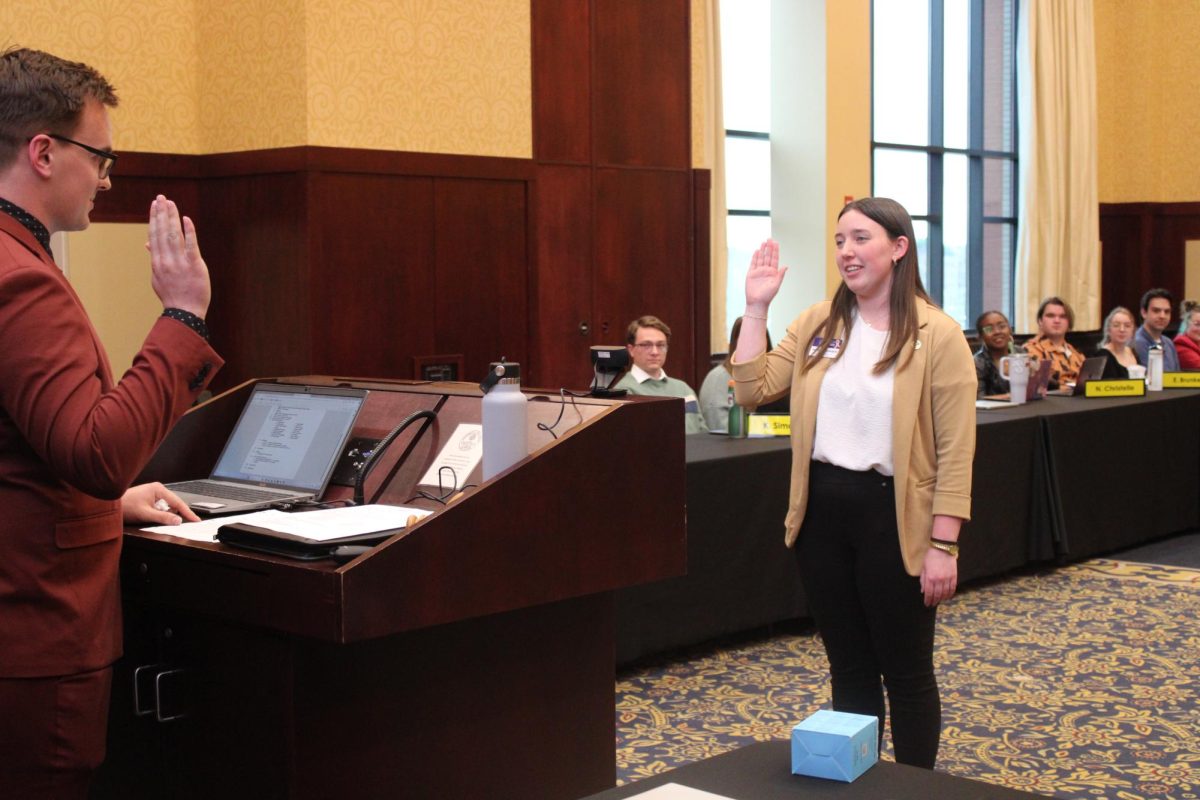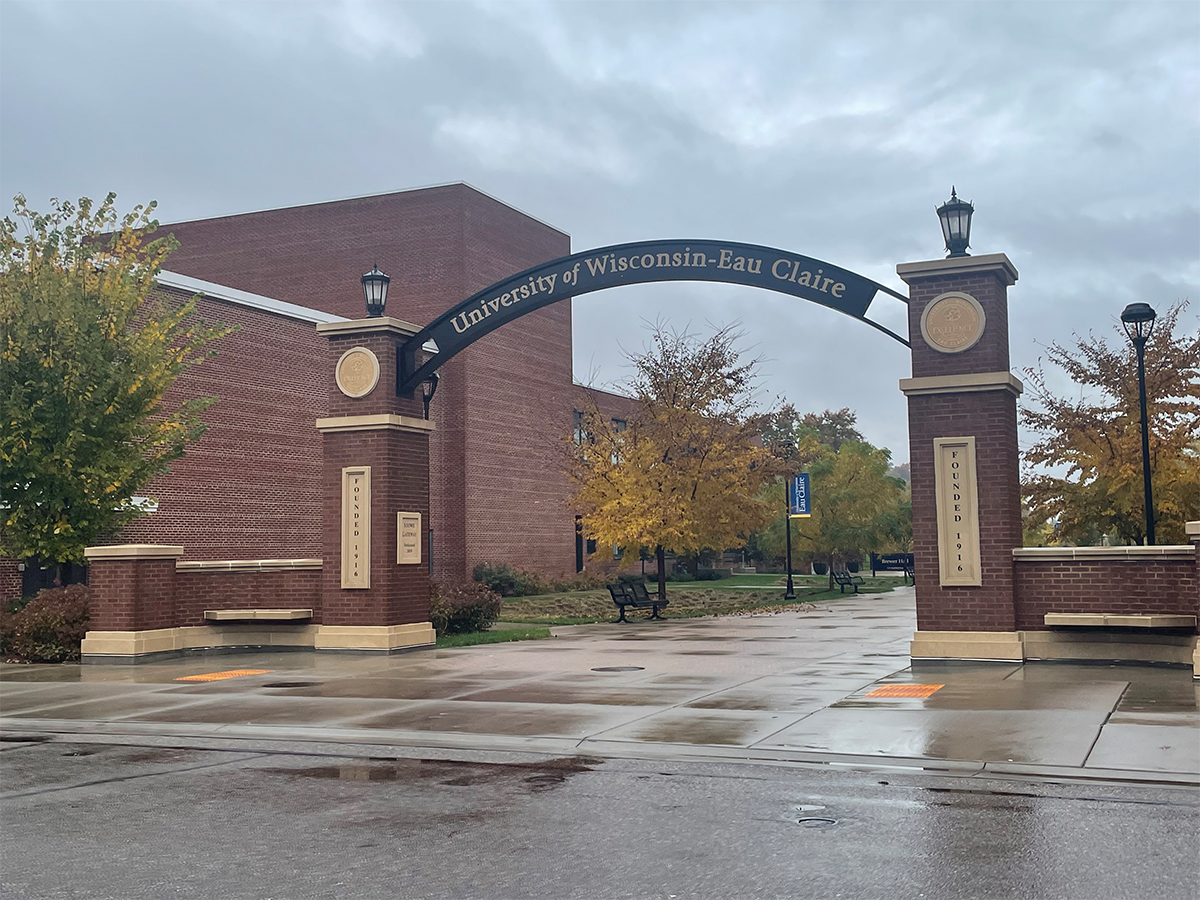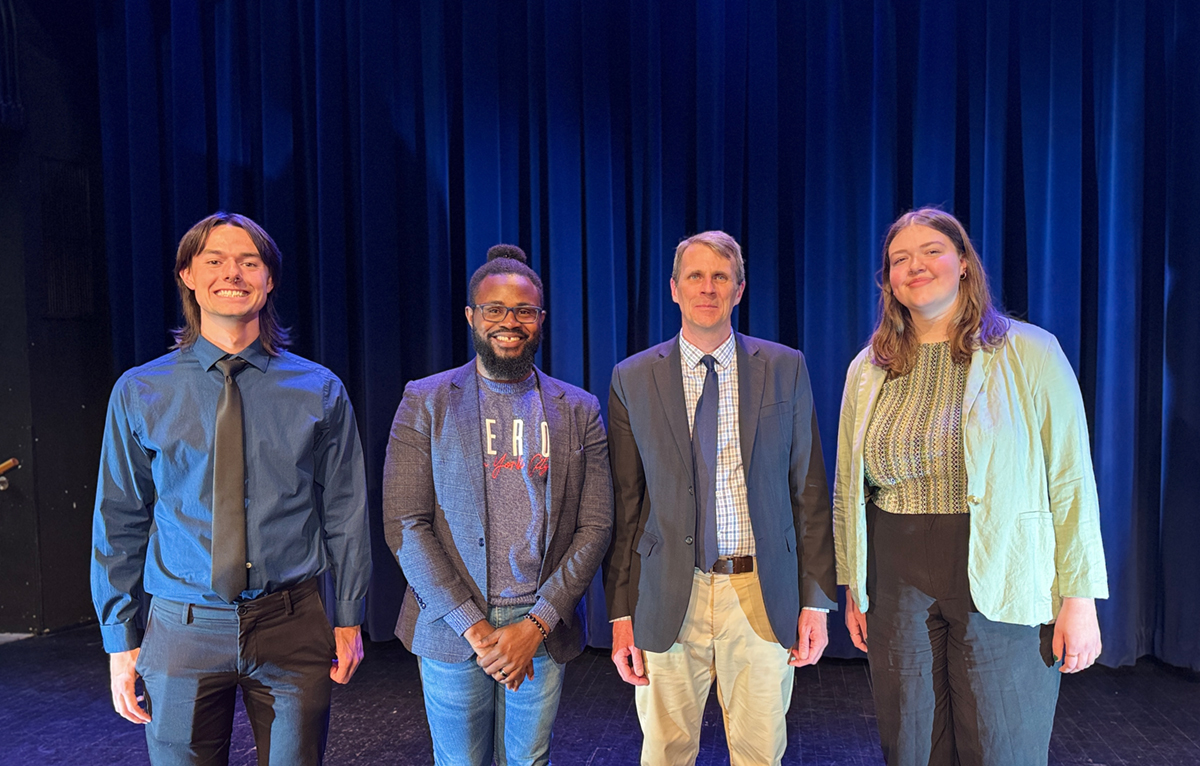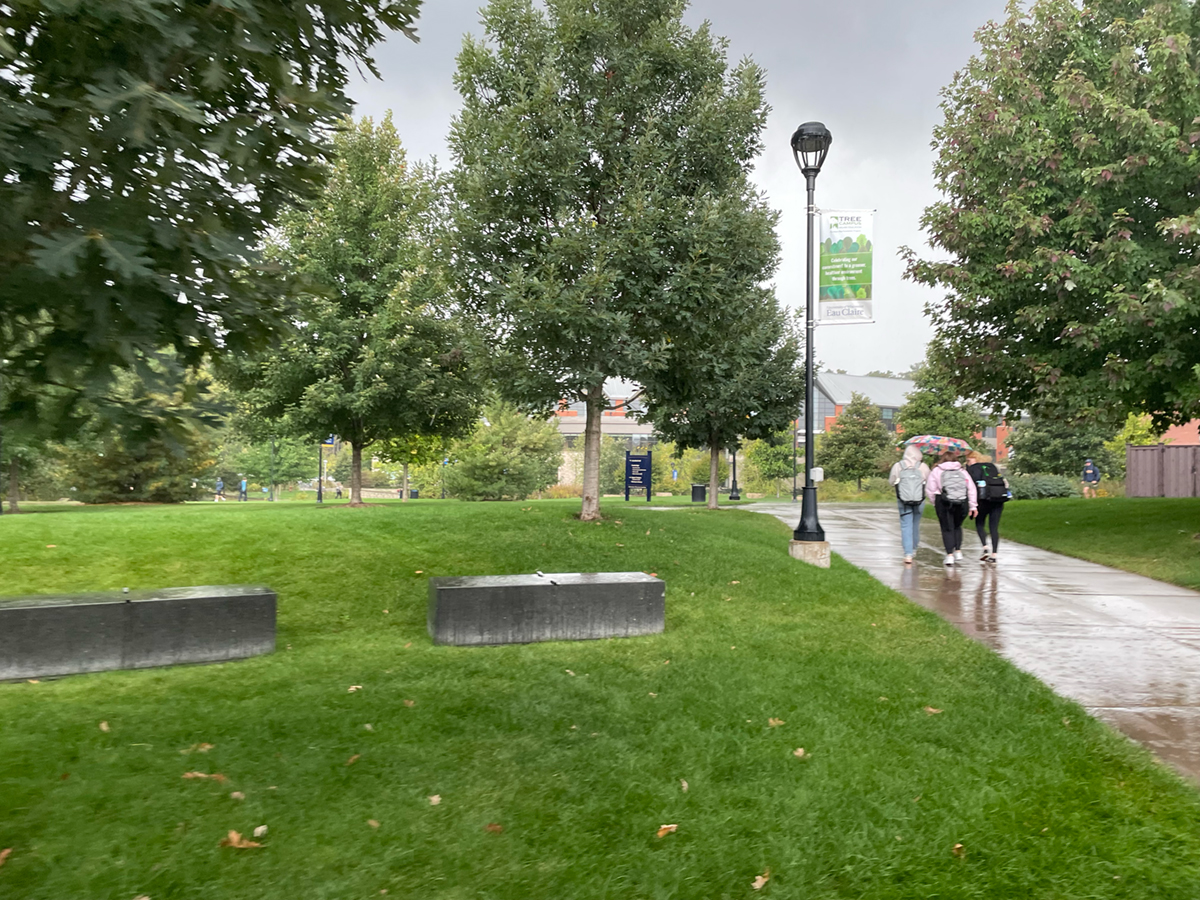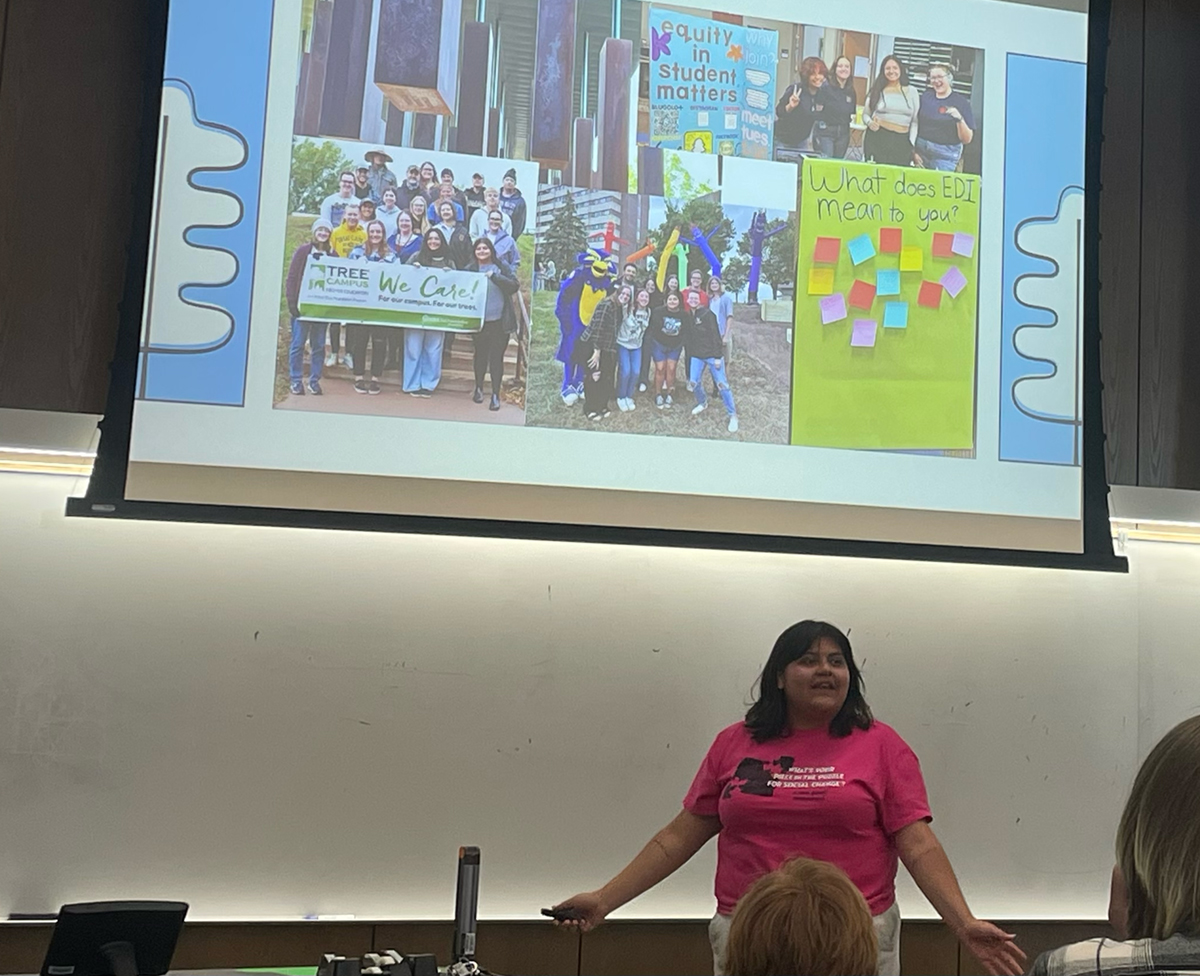 Ben Smidt
Ben SmidtSome of the biggest consumers of paper products are universities, and UW-Eau Claire is no exception with 516 tons of paper used on campus each year.
The near hour-long Tree-Free Rally on Tuesday night, which drew about 100 people to the Tamarack Room of Davies Center, discussed the implementation of higher content post-consumer waste paper on campus.
The university setting is the ideal place for these recycling reforms to happen because of the nature of the institution, said sophomore Liam Robinson, a member of the Environmental Conservation Organization.
“The university is the spearhead of revolution, of evolution, of intellect,” he said. “We must set the trends as innovators.”
The UW System’s Bureau of Procurement has a mandatory contract, listing a couple of suppliers for UW campuses to buy paper. Eau Claire uses Great White 8.5-by-11-inch paper from the International Paper Company for copying, faxing and printing.
Paper currently used on campus is 30 percent recycled post-consumer content, and ECO is asking for 100 percent.
Last year, the university budgeted for 5,160 cartons of Great White paper. The university purchased colored paper, plain white paper and three-hole punched white paper, totaling 25.8 million sheets.
Standard 8.5-by-11-inch paper without three-hole punches cost the university more than $99,000 for the 4,360 cartons purchased last year, said Tim Candell, supervisor of the university’s Central Stores.
The university has tried paper with more post-consumer content in the past, but he said the paper had problems.
An entire semi-load of the paper had to be sent back to the manufacturer, Candell said. The paper was dusty and waxy, and pages were cut to different dimensions. Faculty reported printing and copying problems while using the paper.
The higher percentage of recycled content paper would cost the university more money, too, Candell said.
For regular 8.5-by-11-inch paper the cost for next year’s shipment of Great White paper will cost more than $87,200 at the new price set by the contract effective Dec. 1.
Buying Badger Envirographic paper, which is made from 100-percent post-consumer waste, would cost more than $34,100 more for Eau Claire than the Great White paper used now. The figure is based on the System officials’ estimated cost of $27.85 per carton.
University departments send their requests for paper to Central Stores, and Candell said demand is low for the 100 percent post-consumer waste paper.
“The largest customers (departments) want the Great White,” he said. “Departments do have the option of purchasing 100-percent recycled paper, but they don’t.”
Lois Norrgard, Upper Midwest organizer for American Lands, a national environmental conservation group, spoke at the rally about logging policies and action initiatives like the Tree-Free campaign.
A large part of the American Lands campaign is a boycott of Boise Cascade, a company that the System uses to get office supplies not covered by the standard budget from the office of procurement.
Norrgard said logging practices of cutting into older forests should be stopped. Her organization is talking to paper consumers and asking for boycotts as well as speaking directly to the logging companies.
“We’re in an extinction phase right now that is unprecedented,” she said. “The reason why it is unprecedented is because of man.”
The ECO brought a petition for the implementation of 100-percent post-consumer waste paper on campus to Student Senate last year, Senate President Sarah Schuh said. It was tabled so Senate could do research on the idea, and the next week it was reintroduced and gained unanimous support from senators.
ECO collected 2,000 student signatures in support of the initiative, Robinson said. The group formed last year as a coalition of environmental advocates on campus, and it has been working on the Tree-Free campaign since.
The cycle of recycling often is overlooked, Robinson said. Placing recyclables out for pick-up is only part of the process, and buying products with the highest percent of post-consumer waste is the next phase of the cycle.
The speakers said recycling awareness is a key concept that isn’t always taught to everyone.
“I recycle,” Robinson said. “I hope you do.”


